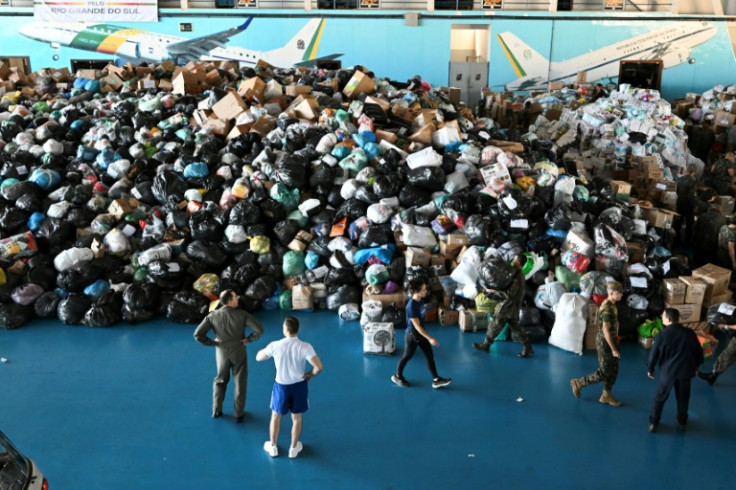
Rain continued to soak waterlogged southern Brazil on Saturday, bringing fresh misery to victims of flooding that has killed 136 people so far.
"Many people see the rain and are traumatized. We've seen how scared people are," said Enio Posti, a firefighter in Porto Alegre, capital of stricken Rio Grande do Sul state.
Heavy rains last week caused rivers in the agricultural state to overflow, leaving 806 injured and 125 missing in addition to those killed, the civil defense agency said.
Of the more than two million people affected by the flooding, more than 537,000 have been forced from their homes with 81,000 in shelters.
More than 92,000 homes were damaged or destroyed by the floods, according to the National Confederation of Municipalities.
United Nations experts and the Brazilian government blame climate change and the El Nino weather phenomenon for the inundation.
New downpours were expected to be heaviest between Sunday and Monday, and state authorities were warning of the risk of further rising waters and landslides.
"We are still experiencing an emergency situation," Rio Grande do Sul Governor Eduardo Leite said in a video on Instagram.
Residents were told to stay away from flooded areas, with dangers including electrocution by downed power lines.
"I was soaked. They helped me and gave me clothes," 36-year-old Everton Machado told AFP after being rescued by boat while searching for his parents.
In the flooded streets of the Sao Joao neighborhood, volunteers and firefighters worked in heavy rain, bringing supplies to residents on jet skis and inflatable boats.
Volunteers were taking pets to shelters, with veterinarians treating those with medical needs.
Military and other security forces were also part of relief efforts. Almost two tons of food and supplies have been distributed by the federal government, in what President Luiz Inacio Lula da Silva called "the largest movement of donations ever recorded in the history" of Brazil.
The federal government this week promised some $10 billion for reconstruction in Rio Grande do Sul, which is experiencing its worst ever climate disaster.
Water levels in the state's Guaiba River, which runs through Porto Alegre, home to 1.4 million people, reached historic levels this week.
On Saturday afternoon, they dropped to 4.57 meters, the lowest level since May 3.
Despite the new rain, residents of Porto Alegre were trying to regain some normalcy, with some shops and restaurants opening.
But with water supplies still disrupted, tanker trucks delivering clean water were a common sight all over town.
Elsewhere, vacuum trucks were pumping muddy floodwater from the streets and buildings.
In recent months, Brazil has been hit by historic floods, record-breaking forest fires, unprecedented heat waves and drought.








